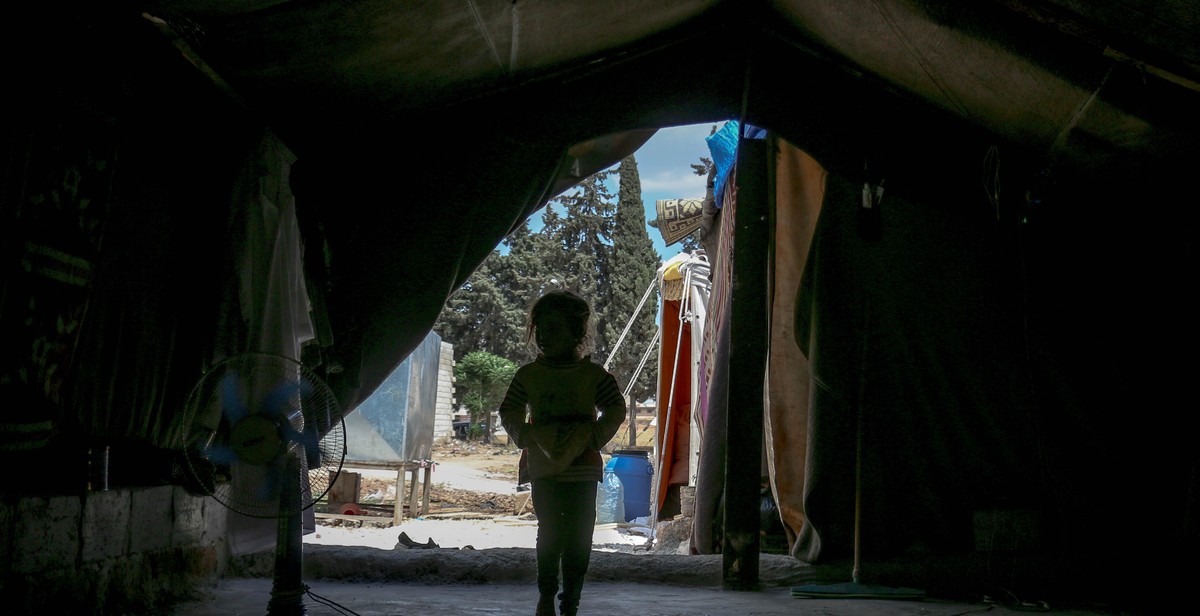Childhood Neglect: Long-Term Mental Health Implications
As someone who has experienced childhood neglect firsthand, I understand the long-term mental health implications that come with it. Neglect can take many forms, from physical neglect to emotional neglect, and it can have a profound impact on a person’s mental well-being.
What is Childhood Neglect?
Childhood neglect refers to a failure on the part of a caregiver to provide for a child’s basic needs, such as food, shelter, and emotional support. This can be intentional or unintentional, but regardless of the cause, it can have lasting effects on the child’s mental health.
My Personal Experience
As a child, I experienced emotional neglect from my parents. They were physically present but emotionally distant, rarely expressing affection or providing emotional support. This left me feeling isolated and alone, and I struggled with depression and anxiety throughout my teenage years and into adulthood.
Through therapy and self-reflection, I have come to understand the impact that childhood neglect had on my mental health. I also know that I am not alone in this experience, and that many others have also been affected by neglect in childhood.
In this article, we will explore the long-term mental health implications of childhood neglect and provide strategies for coping and healing from this experience.

Defining Childhood Neglect
Childhood neglect is a type of child abuse that involves the failure of a caregiver to meet a child’s basic needs, such as food, shelter, clothing, medical care, and supervision, leading to harmful consequences on the child’s physical, emotional, and social well-being. Neglect can be chronic, meaning it occurs over an extended period, or acute, meaning it happens suddenly and severely.
Types of Childhood Neglect
Childhood neglect can manifest in different forms, including:
- Physical neglect: This involves the failure to provide a child with adequate food, clothing, shelter, and medical care, which can lead to malnutrition, illness, and injury.
- Emotional neglect: This involves the failure to meet a child’s emotional needs, such as love, affection, attention, and support, leading to feelings of worthlessness, insecurity, and loneliness.
- Medical neglect: This involves the failure to provide a child with necessary medical treatment, medication, or therapy, leading to untreated illnesses, injuries, or disabilities.
- Supervisory neglect: This involves the failure to provide adequate supervision and protection for a child, leading to exposure to dangerous situations, such as accidents, violence, or exploitation.
Effects of Childhood Neglect
Childhood neglect can have long-lasting effects on a child’s mental health, including:
| Effects | Description |
|---|---|
| Depression | Feelings of sadness, hopelessness, and worthlessness, leading to a loss of interest in activities and relationships. |
| Anxiety | Feelings of fear, worry, and panic, leading to avoidance of social situations and difficulty in trusting others. |
| Post-traumatic stress disorder (PTSD) | Flashbacks, nightmares, and avoidance of triggers related to past traumatic experiences, such as abuse or neglect. |
| Attachment disorders | Difficulty in forming and maintaining healthy relationships, leading to either clinginess or avoidance of intimacy. |
| Substance abuse | Use of drugs or alcohol to cope with emotional pain and distress. |
| Eating disorders | Unhealthy eating habits, such as binge-eating or purging, leading to physical and psychological complications. |
| Self-harm | Intentional injury to oneself, such as cutting or burning, as a way to cope with emotional pain and distress. |
It is important to note that the effects of childhood neglect can vary depending on the severity, duration, and frequency of the neglect, as well as the child’s age, gender, and individual resilience. However, in general, childhood neglect can have a profound impact on a child’s development and well-being, leading to long-term mental health implications that can persist into adulthood.

Long-Term Mental Health Implications of Childhood Neglect
Childhood neglect can have severe long-term effects on an individual’s mental health. The lack of emotional, physical, and social support during childhood can lead to various mental health disorders that can persist throughout adulthood. Here are some of the most common long-term mental health implications of childhood neglect:
Depression
Childhood neglect can increase the risk of developing depression in adulthood. The lack of emotional support and nurturing during childhood can lead to feelings of worthlessness, hopelessness, and low self-esteem. These feelings can persist into adulthood and result in major depressive disorder.
Anxiety
Childhood neglect can also increase the risk of developing anxiety disorders. The lack of emotional support and stability during childhood can lead to feelings of fear, worry, and uncertainty. These feelings can persist into adulthood and result in generalized anxiety disorder, panic disorder, or social anxiety disorder.
PTSD
Childhood neglect can also lead to post-traumatic stress disorder (PTSD) in adulthood. Neglect can be a traumatic experience for a child and can result in long-term emotional and psychological distress. Individuals who experienced childhood neglect may develop symptoms of PTSD such as flashbacks, nightmares, and avoidance behaviors.
Borderline Personality Disorder
Childhood neglect can also increase the risk of developing borderline personality disorder (BPD) in adulthood. BPD is a mental health disorder characterized by unstable emotions, impulsive behavior, and unstable relationships. Individuals who experienced childhood neglect may struggle with emotional regulation, self-identity, and interpersonal relationships.
Substance Abuse
Childhood neglect can also increase the risk of developing substance abuse disorders in adulthood. Individuals who experienced childhood neglect may turn to drugs or alcohol as a means of coping with their emotional pain and trauma. Substance abuse can lead to addiction and further exacerbate mental health problems.
Conclusion
Childhood neglect can have severe long-term effects on an individual’s mental health. It is important to seek professional help if you or someone you know has experienced childhood neglect and is struggling with mental health problems.

Treatment for Childhood Neglect
Childhood neglect can have long-term mental health implications that may require professional treatment. The following are some of the most effective treatments for childhood neglect:
Therapy
Therapy is one of the most effective treatments for childhood neglect. A licensed therapist can help individuals process their past experiences, identify negative thought patterns, and develop coping mechanisms to manage their emotions. The type of therapy used will depend on the individual’s needs and preferences. Some of the most common therapy types used to treat childhood neglect include:
- Cognitive Behavioral Therapy (CBT): This type of therapy helps individuals identify and change negative patterns of thinking and behavior.
- Eye Movement Desensitization and Reprocessing (EMDR): EMDR is a type of therapy that helps individuals process traumatic memories and develop new, more positive associations with them.
- Play Therapy: Play therapy is often used for children who have experienced neglect. It allows them to express their emotions through play and helps them develop healthy coping mechanisms.
Medication
In some cases, medication may be used to treat the symptoms of childhood neglect. Antidepressants and anti-anxiety medications can help individuals manage their emotions and reduce symptoms of depression and anxiety. However, medication should always be used in conjunction with therapy and under the guidance of a licensed healthcare professional.
Self-Care
Self-care is an essential part of treating childhood neglect. Individuals who have experienced neglect may struggle with self-esteem and self-worth. Practicing self-care can help individuals develop a more positive self-image and improve their overall mental health. Some self-care practices that may be helpful include:
- Exercise: Exercise is a great way to improve mood and reduce symptoms of depression and anxiety.
- Meditation: Meditation can help individuals reduce stress and anxiety and improve their overall mental health.
- Journaling: Writing down thoughts and feelings can help individuals process their emotions and identify negative thought patterns.
| Treatment Type | Description |
|---|---|
| Therapy | Helps individuals process past experiences, identify negative thought patterns, and develop coping mechanisms to manage their emotions. |
| Medication | Antidepressants and anti-anxiety medications can help individuals manage their emotions and reduce symptoms of depression and anxiety. |
| Self-Care | Practicing self-care can help individuals develop a more positive self-image and improve their overall mental health. |

Conclusion
Childhood neglect is a serious issue that can have long-lasting effects on an individual’s mental health. The lack of emotional and physical support during a child’s formative years can lead to a range of mental health issues, including depression, anxiety, and post-traumatic stress disorder.
It is important for parents, caregivers, and society as a whole to recognize the impact of childhood neglect and take steps to prevent it. Early intervention and support can help mitigate the effects of neglect and improve outcomes for affected individuals.
Prevention and Intervention
Prevention and intervention strategies include:
- Providing education and resources to parents and caregivers to promote healthy parenting practices
- Early identification and intervention for at-risk families
- Access to mental health services for affected individuals
- Community support and resources for families in need
Continued Research
Continued research on childhood neglect and its long-term effects is necessary to develop effective prevention and intervention strategies. It is important to understand the complex interplay between neglect, genetics, and other environmental factors to better support individuals affected by neglect.
| Key Takeaways |
|---|
| Childhood neglect can have long-lasting effects on mental health. |
| Prevention and intervention strategies can help mitigate the effects of neglect. |
| Continued research is necessary to develop effective strategies and support affected individuals. |
